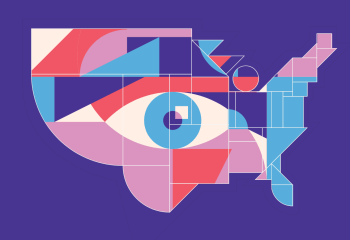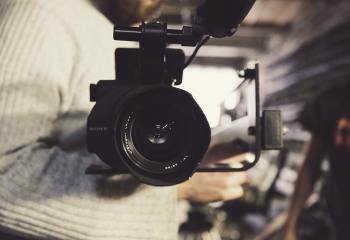
Bias in others’ news a greater concern than bias in own news
Update: On Nov. 9, 2020, Gallup updated the report “American Views 2020: Trust, Media and Democracy,” to correct a methodological error. The changes do not alter the underlying integrity of the data nor the conclusions. However, specific numbers have changed for a range of results, and have been updated in this post. Learn more.
WASHINGTON, D.C. — More than eight in 10 Americans think there is at least a fair amount of political bias in news coverage in general, and over half say the same of the news source they rely on most, according to a recent Gallup/Knight Foundation study. Yet 64% of Americans say they are more concerned about bias in the news other people consume than its presence in their own news (34%).
These findings are based on the latest Gallup/Knight Foundation study, American Views 2020: Trust, Media and Democracy, which includes more than 20,000 interviews collected between November 2019 and February 2020.
While attitudes on most aspects of media covered in the wide-ranging study vary principally by political party, similar percentages of all party groups are mainly concerned about bias in others’ news sources, rather than their own. Roughly two in three Republicans (64%), Democrats (65%) and independents (64%) express this view. However, those who identify as liberal (75%) are more concerned than conservatives (63%) and moderates (60%) with other people’s media bias.
More educated and younger Americans more concerned about others’ media bias
Differences in Americans’ concern about the bias other people are exposed to are particularly striking when viewed by education level, with higher concern seen at each level of educational attainment. Specifically, whereas 52% of Americans with a high school education or less are more concerned about bias in others’ news than in their own, the figure is 65% among those with some college education and is even higher among college graduates (74%) and those with postgraduate education (77%).
Also, seniors are somewhat less concerned with the bias in others’ news than adults under 50: 58% of those 65 and older have this concern, compared with 68% of those under age 50.
Levels of concern about news bias also differ based on race/ethnicity and gender. While 50% of Black adults are more concerned about bias in others’ news than in their own, fully 70% of Asian Americans and 68% of White adults say the same. Men (67%) harbor these concerns more than women (60%).
Bottom Line
While Americans acknowledge bias in their favored source of news, their greater concern about bias in other people’s media may suggest their discontent with the news media lies less in their experience with it than in their perceptions of others’ experiences, explaining how this plays into the political polarization in the U.S. national discourse. One hypothesis to account for this is that people may assume they are better able than others to recognize news bias, and thus believe they are more impervious to it.
Greater concern about bias in others’ news among younger Americans is consistent with other studies showing they are more likely than older Americans to think news is biased and to be able to identify “fake news.” As “digital natives,” they are more media savvy and consult multiple sources and their own personal networks to discern the truth. Similar to young adults, more-educated Americans may have greater confidence in their ability to discern fact from fiction.
Given the differences noted by both ideology and education, more-educated liberals harbor greater concern about others’ media sources — most likely right-leaning news media. While such outlets consider themselves as providing an important counternarrative to the left-leaning “mainstream media,” in the general public there appears to be greater concern on the left about the influence of conservative media sources on Americans.
Photo (top) by engin akyurt on Unsplash
Recent Content
-
Journalismarticle ·
-
Journalismarticle ·
-
Journalismarticle ·





